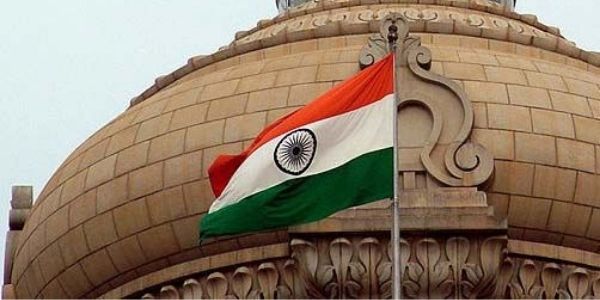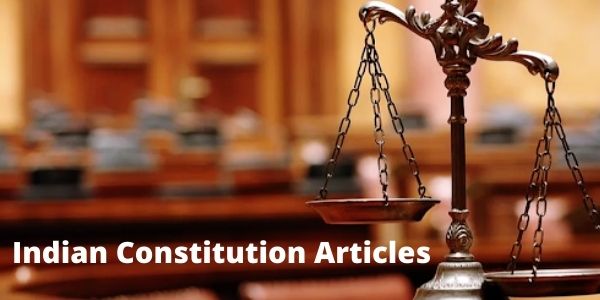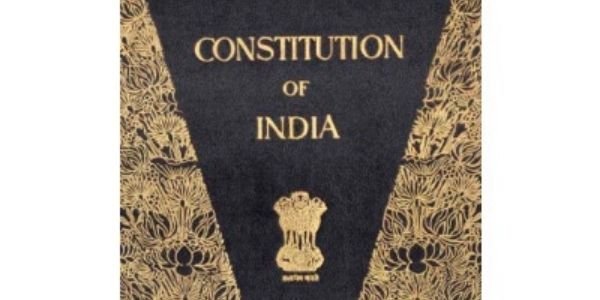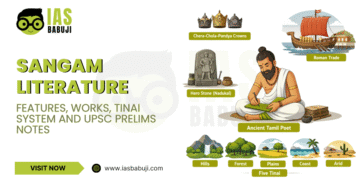In the first place, in this article, we will be talking about the Indian Constitution Articles. Further, in the article, you will find the complete information of the total articles in the Indian Constitution. We believe it will help you with the exam preparations. Besides, in our other articles, we have covered the details of the IAS exam and all the other exams conducted by the UPSC. So, you can check out below for the necessary links.
Introduction
To begin with, the Constitution of India contains 395 articles in 22 parts. Further, it also includes 12 schedules. Since 1949, it has been amended 103 times. Besides, the total number of amendment Bills introduced till today in parliament is 126. Then, in the last year 2019 – 20. Below we will look into some of the essential articles.
| Article | Importance |
|---|---|
| Article 12 –35 | Fundamental Rights available |
| Article 36-51 | Directive Principles of state policy |
| Article 51A | Fundamental Duties of every citizen |
| Article 80 | number of seats in the Rajya Sabha |
| Article 81 | number of seats in the Lok Sabha |
| Article 343 | Hindi as an official language |
| Article 356 | Imposition of President’s Rule in states |
| Article 370 | Special status to Kashmir |
| Article 395 | Repeals India Independence Act and Government of India Act, 1935 |
Besides, if you want to learn more about the Indian Constitution Articles, you can visit the official website. You will find all the details. Read More.
Further, below we have explained some of the Articles in detail.
Part 1 – The Union and it’s Territory
Article 3 – It is about the formation of new States and alteration of areas, boundaries, or names of existing States. Further, the Jammu and Kashmir Reorganisation Act, 2019, reorganizes the state of Jammu and Kashmir.
- Article 5 – Citizenship at the commencement of the constitution.
- Article 6- Rights of citizenship of a certain person who has migrated to India from Pakistan.
Part 2 – Citizenship – Indian Constitution Articles
- Article 8: says the Rights of citizenship of certain persons of Indian origin residing outside India.
- Article 10: says Continuance of the rights of citizenship.
- and Article 11 – Parliament to regulate the right of citizenship by law.
Part 3 – Fundamental Rights
Article 14 – Equity before the law
- The Muslim women (Protection of Rights on Marriage) Act 2019, it says that a declaration of talaq a cognizable offence, attracting up to 3 years imprisonment with a fine. The Triple Talaq was considered as the violative of Article 14.
Article 15 – It is about the Prohibition of discrimination on the grounds of religion, race, caste, sex, or place of birth.
- The Constitution (103rd Amendment) Act, 2019, says that it accommodates 10% booking for the financially more fragile segments (EWS) in higher instructive establishments and occupations inside the overall class. Further, it embedded article 15 (6) and 16 (6) in the constitution.
Article 19 – It says
- speech and expression,
- assembly,
- association
- movement
- residence, and
- profession.
Additionally, the Supreme Court has declared access to the web a fundamental right under Article 19 (1)(a) of the Constitution.
Article 20 – Protection regarding conviction for offenses.
Article 32 – Right to constitutional remedies.
Part 4 – Directive Principles of State Policy
Article 39 – Certain standards of strategy to be trailed by the State.
Further, the Supreme Court-designated Justice Amitava Roy (retd.) The committee has offered suggestions to change jails. Further, Article 39-An of the Constitution guides the State to guarantee that the activity of the general set of laws advances equity on a premise of equivalent freedom and will, specifically, give free lawful guide by appropriate enactment or plans or in some other manner.
Article 41 Right to work, training, and public help with specific cases.
Further, the Chhattisgarh Cabinet has given a revision to the State Panchayati Raj Act, 1993, that makes obligatory the presence of an individual with inabilities in all panchayats across the State. Further, it says that people assuming in an unexpected way abled individuals are not chosen through the electoral cycle; one part, either male or female, would be named by the public authority.
Article 43 – Living pay, and so forth, for laborers.
Then, this article guarantees that the lowest pay is permitted by law to the specialists.
Article 44 – Uniform standard code for the residents
Part 5 – Union Executive and Parliment
Further, in the Indian total Constitution Articles, we have the below articles.
Article 72 – Power of President to grant pardons etc., and suspend, remit or commute sentences in certain cases.
Article 80 – Composition of the Council of States.
And Article 82 Readjustment after each census.
Article 102 – Disqualifications for membership.
Then, click on the below link for more details on the same and you can download it for the exam.
UPSC Exam Highlights
Now we will look into the UPSC exam highlights. If you are reading this article, you are probably planning to write the exam. The IAS exam is conducted by the UPSC authority every year. Further, we see many students applying for the exam, but in the end, only a few will be able to clear the exam. These exams also check your hard work and dedication towards your goal along with the subject knowledge, and it becomes essential for one to work hard and focus on the exams. So then, in the IAS exam, there are mainly three stages.
First is the Preliminary exam, the second is the main exam, and the last is the Interview round. Besides, it becomes essential for one to clear all the stages of the exam. In the prelims, there are questions of objective type, and in the main exam, questions are of descriptive type, and those who clear the main exam are allowed to give the Interview round. Further, you have the option of going to the classes. Besides, joining classes names with some advantages. But, it depends from one person to the other. Then, you will find details of the classes in our other article. You can go through and choose one.
Conclusion – Indian Constitution Articles
In brief about the Indian Constitution Articles, we have added the complete information of the total articles in the Indian Constitution. First, one needs to understand from the exam point of view. Then, in the article, you will find detailed knowledge of the articles as asked in the IAS exam in the GS polity paper. So, you can make points and study during the exam. We know it is difficult to remember all the articles, so you can make essential points notes and revise them regularly. It will help you to remember well.
Then, it is normal to get tensed in the exams but try not to as it will make you feel weak. You can do your part by preparing well for the exam; however, we are unaware of the results. So, not to regret in the future, focus on your dreams and work on them. Besides, one must get motivation by reading the success stories of the IAS and IPS officers. Therefore, we have also covered success stories of toppers. You will find them here.
Note – If you are looking for the complete details of the UPSC exam like exam pattern, syllabus, books, tips, and other exam details. Click here, and we have added all the information that will help you with the exam. Then, try to make points while reading, it will help you during the exam.
FAQs – Indian Constitution Articles

Lastly, look into a few FAQs for more details, it will help you with an understanding of the concept.
There are a total of 395 articles in the Indian Constitution.
Nitish Kumar of Bihar is India’s youngest CM.
India has the world’s lengthiest Constitution with 448 articles, 25 parts, and 12 schedules.
Dr. B.R. Ambedkar made the Constitution of India.
Editor’s Note | Indian Constitution Articles
In brief, in the above article, you will find the complete details of the total articles in the Indian Constitution, and it is also essential from an exam point of view. So, this article will help you by providing all the necessary information regarding the Indian Constitution Articles. It will mainly help you with the GS paper related to the Indian Polity. Further, talking about the UPSC exam, this exam demands a high level of dedication and hard work. Not everyone can become an IAS officer; only those serious about their dreams and ready to work hard can become one. Then, in the article, we have also provided essential links that will help you with the exam preparations.
As we have already mentioned, it is not easy to clear the exam, but one can easily clear it with the right plan and direction. So, finally, we wish you good luck with the exams. You may feel difficulty at the start but don’t lose hopes. So, preapare well for the exam.









